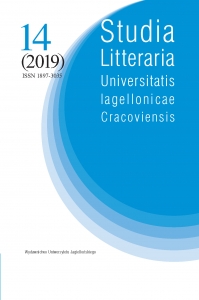Ryby rzeczne są zazwyczaj niedorzeczne”. Czego nie potrafi maszyna, czyli o kompetencjach tłumacza i prawach przekładu w kontekście przekładu literackiego
“Shellfish are Extremely Selfish”: What an Automatic Translator Cannot Do. On the Translator’s Competence and the Translation Principles in the Context of Literary Translation in the Face of the Ongoing Automation of Translation
Author(s): Joanna KubaszczykSubject(s): Studies of Literature, Translation Studies, Theory of Literature
Published by: Wydawnictwo Uniwersytetu Jagiellońskiego
Keywords: literary rendition; translation competence; literary competence; translation principles; relocation; poetic function; choice; combination; human translation;
Summary/Abstract: In view of the emergence of increasingly sophisticated tools for automatic translation, a legitimate question arises: what is the difference between human translation and machine translation, which competence surplus is brought by the human factor, what conditions must be met for human translation to be more perfect than machine translation? The author tries to answer the question discussing different types of competences with particular emphasis on literary competence related to the poetic function of the language. Referring to selected principles of the Translation Studies, postulated in Kubaszczyk (2019), the author argues why human being is still irreplaceable in literary rendering and shows, in reference to Jakobson (1960), how in literary rendering the translator shifts from the selection axis to the combination axis searching for the optimal solution. In the second part of the article, the theoretical argument is supported by empirical evidence.
Journal: Studia Litteraria Universitatis Iagellonicae Cracoviensis
- Issue Year: 14/2019
- Issue No: 4
- Page Range: 219-232
- Page Count: 14
- Language: Polish

